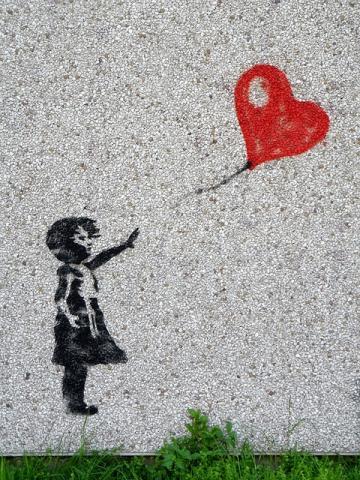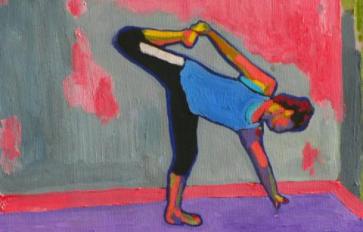
We meandered through the bookstore aisles, my bright-eyed friend and I, the titles inspiring forks and bends in what was already a beautifully flowing stream of conversation. This was typical of times with Gabe, a soul on fire with whom there was never a shortage of awe-fueled adventure or enlivening discussion. He carried the kind of light that always stuck around for a while after he left, illuminating passageways of perception previously undetected.
As my eyes used the spaces between our words to dart across the shelves in search of their next wild ride, I saw that Gabe’s eyes were fixated on a passage in a Zen philosophy book, his expression now in stark contrast to that of the impassioned man I had been bookstore-wandering with just seconds ago. His face looked heavy, the light in his eyes barely shining through the fear-woven veil that so rarely got in its way. My heart fluctuated between a deep aching for seeing my typically sure-footed friend stumble into the trenches of despair, and a deeper knowing that he would be just fine-- and very soon at that. Meanwhile, my mind was stuck on one question: what could he possibly have read, in a Zen philosophy book of all places, that would derail him so completely from his typical course?
We left the bookstore shortly after, the heaviness lifting noticeably with each passing minute. As we walked the neighborhood, homebound steps steeped in shared silence, Gabe broke the silence with a relieved sigh. With a playful side-eye-smirk combo, he remarked, “We all have our kryptonite, don’t we?” I smiled back at him, grateful that relief had showed up to the party.
He explained that he had been reading a passage on letting go of desire, and that the task had seemed insurmountable lately. There it was—desire. The topic seemed to be the booby trap of the modern spiritual jungle. I’ve seen countless others shame-snagged by the trap of desire theory, myself often included. It’s an undeniably tricky topic, with some spiritual schools of thought promoting its denouncement altogether, and some offering a less extreme view, encouraging simply the “letting go” of desire. In all cases, the underlying message is that the sense of fulfillment provided by the divine is a trillion-and-seventeen times (that’s the exact figure, in case you were wondering) more fulfilling than the realization of any earthly desire ever will be, and that by clinging to specific desires, we miss our opportunity to let this fundamental sense of contented fulfillment enter our experience. Of course, in our better moments, we know that this is the message. But my friend’s burdened face that day reminded me of the implications of this teaching gone untamed, a scenario that so quickly and easily leads to the demonization of desire.
His face reminded me that for so many of us, teachings on desire have taken root in our minds, only to be watered from what turned out to be a contaminated can. The intentions were pure, but the toxicology report is in, and it shows clearly that the water was laced with insecurity. Thriving in an environment of impatience, our insecurities get the best of us—demonizing our natural inclinations, telling us that we shouldn’t have need for the material or physical offerings of life, bombarding us with not-so-subtle reminders that we should find all the joy we need in each moment, no matter the circumstances, without material modification, and that it shouldn’t be taking us so damn long to figure out how to do so. But as always, our insecurities deceive us.
We may have our sights set steadily on unlocking unsoiled states of enlightened ecstasy, but between these impeccably pure, meta-human moments, your human self might want a shot at this life thing too. So let your body eat and drink, let your mind synthesize and organize, and for the literal love of all that is holy (humanity being no exception), let your soul dream and desire.
British philosopher Alan Watts once illustrated the human relationship to desire by likening desire to the breath. He pointed out that once the breath (symbolizing desire) is taken in, attempting to hold it in (or clinging to desire) only causes us to lose our breath. However, if we exhale, thereby letting it go, it always returns to us. The idea is not to eradicate desire altogether, but to confidently yet compassionately regulate it. To allow it enter our experience, filling us with life-giving anticipation, and then to release it with conviction, questioning its return no more than we question the return of the breath to our body or the sun to our morning sky.
These are the words I wished I had for my friend in the moment, the lifeline I so wholeheartedly wished to toss him to help him out of these temporary trenches he had found himself in. But he got there himself. With a sense of amusement, he announced the conclusion drawn from his pondering, proclaiming, “It’s not my kryptonite if it doesn’t get the best of me, is it?”
If ever there were a statement that both Alan Watts and Superman would raise a glass to, this would be it. I gave my friend a pat on the back, welcoming him back home to himself.








